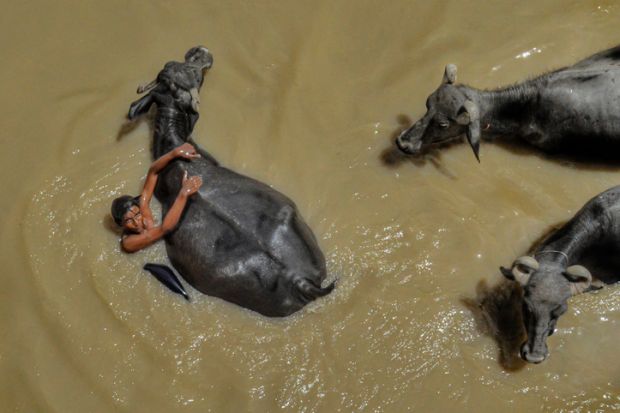Universities across Pakistan are handing out fee exemptions to thousands of students and providing emergency assistance as the country reels from catastrophic flooding.
Unprecedented rains this summer have devastated the nation, sweeping away villages and livestock, killing more than 1,000 people and leaving tens of thousands homeless. A third of the country is under water.
At a time when Pakistani institutions would usually be preparing for the autumn semester, they have been urged to make emergency relief their “top priority” by the country’s Higher Education Commission.
“Provision of food, clothing and shelter to the affected people should be our top priority, with subsequent plans for medical camps by medical universities as well as respective services of agriculture, engineering and veterinary universities,” said HEC chair Mukhtar Ahmed, noting “many universities are doing this already”.
The HEC is creating a portal to facilitate information sharing among universities “so that all activities of the higher education sector for flood-affected areas are executed in a coordinated manner”.
All public and private institutions have been asked to donate at least a day of employees’ salaries to flood relief. Dr Ahmed also called for more collaboration in the sector to identify problems and solutions in areas including food security, health and nutrition, livestock and infrastructure.
Muhammad Murtaza Noor, executive director of the Association of Private Sector Universities of Pakistan (APSUP), which represents more than 90 institutions, told Times Higher Education that it had launched a relief fund for financial assistance, distributing rations, mobilising faculty and students and awarding scholarships to affected learners.
While universities are still tallying the damage to their own facilities, he said that at least 12 of them remain closed in Pakistan’s Sindh province – its second largest province, which has been hardest hit by flooding.
Both federal and provincial governments are working to collect data on affected students, Professor Noor said. But already, he worried that the disaster was likely to leave a lasting mark on the country’s education system.
But in the near term, flooding will “definitely” affect enrolment this autumn, with many students displaced from their homes and facing financial hardship, he said.
He warned that waiving student fees could threaten the “survival and good functioning” of some universities already facing financial difficulty, he said, urging the government to step in to provide student scholarships.
“The financial burden should not be shifted to universities,” he said.
Register to continue
Why register?
- Registration is free and only takes a moment
- Once registered, you can read 3 articles a month
- Sign up for our newsletter
Subscribe
Or subscribe for unlimited access to:
- Unlimited access to news, views, insights & reviews
- Digital editions
- Digital access to THE’s university and college rankings analysis
Already registered or a current subscriber? Login








